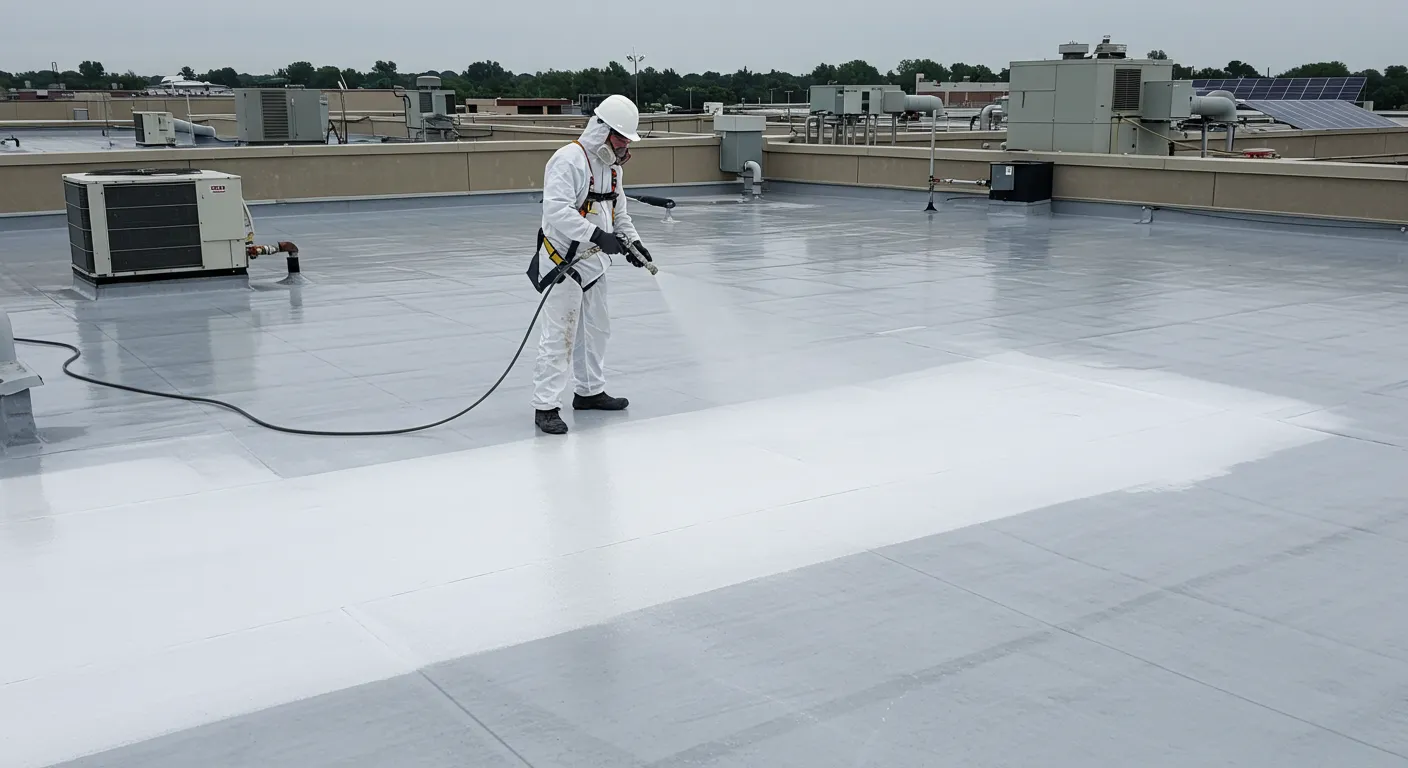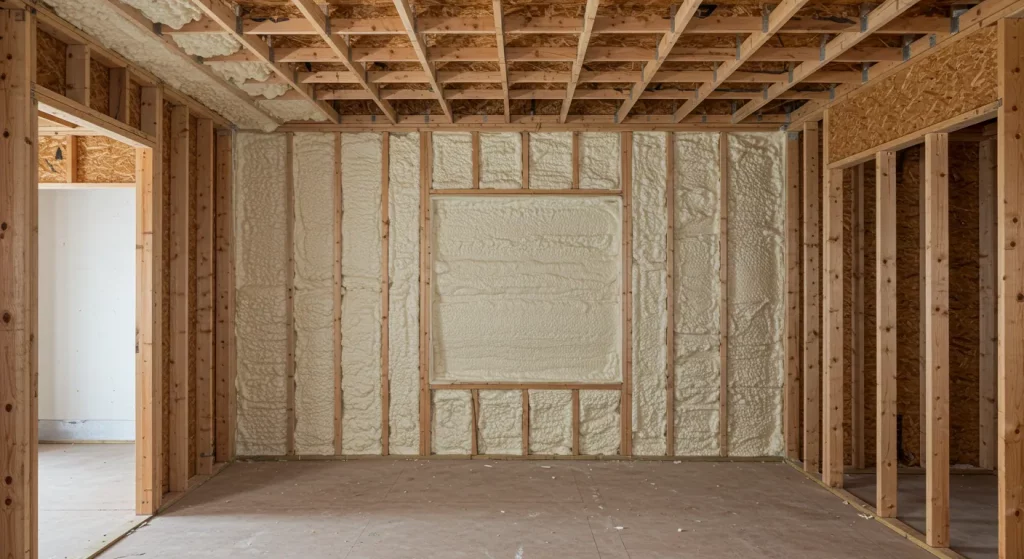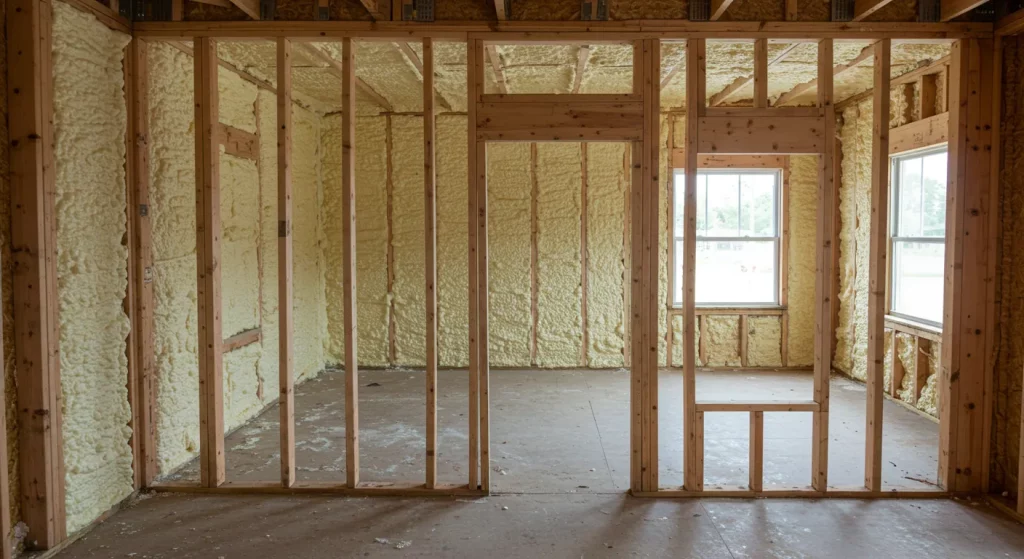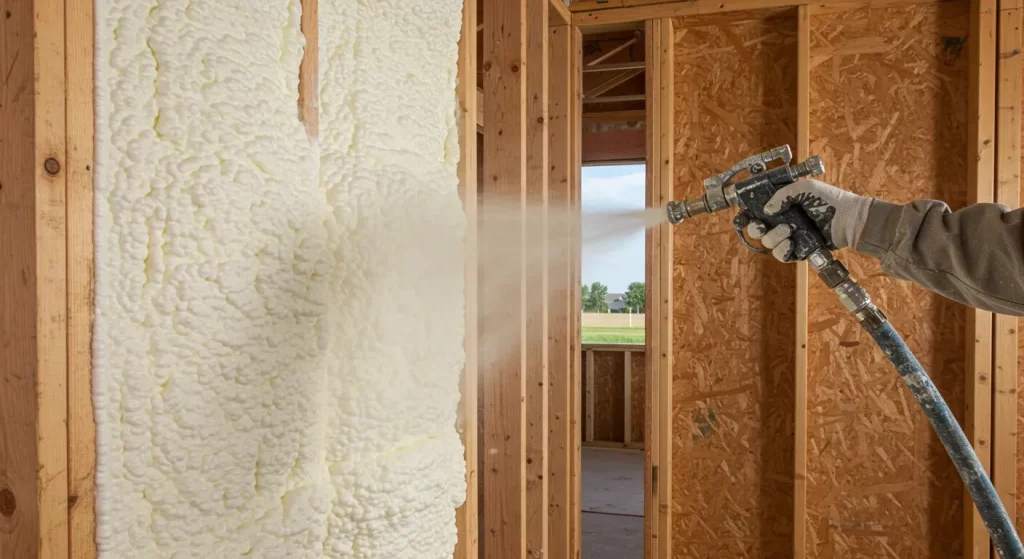Roof insulation is essential for Garner, NC homes due to the region’s humid subtropical climate with hot summers and mild winters. Proper roof insulation reduces energy costs by up to 30%, prevents moisture problems, and maintains consistent indoor temperatures year-round. The combination of high humidity levels and temperature fluctuations makes adequate roof insulation a critical investment rather than an optional upgrade.
Garner’s climate presents unique challenges that make roof insulation particularly important. Summer temperatures regularly exceed 85°F with humidity levels above 70%, while winter lows can drop to the mid-30s. Without proper insulation, homes experience significant heat gain during summer months and heat loss during winter, leading to increased HVAC usage and higher utility bills.
Understanding Garner’s Climate Impact on Home Insulation
Garner experiences approximately 1,800 cooling degree days and 2,800 heating degree days annually, according to the National Weather Service. This climate profile demonstrates the year-round demand for temperature control that effective roof insulation addresses. The high humidity levels also create condensation risks when warm, moist air meets cooler surfaces in poorly insulated roof assemblies.
The region’s weather patterns include intense summer heat, occasional winter freezes, and frequent thunderstorms that can drive moisture into building assemblies. These conditions accelerate energy loss through inadequately insulated roofs and create opportunities for moisture-related damage.
Bonus Tip: Install vapor barriers on the interior side of roof insulation in Garner’s climate to prevent warm, humid air from reaching cooler roof surfaces where condensation occurs.
Roof Insulation Performance Comparison
| Insulation Type | R-Value per Inch | Moisture Resistance | Air Sealing | Lifespan |
|---|---|---|---|---|
| Closed-Cell Spray Foam | 6.0-7.0 | Excellent | Complete | 80+ years |
| Open-Cell Spray Foam | 3.5-4.0 | Good | Excellent | 80+ years |
| Fiberglass Batts | 3.1-3.4 | Poor | None | 15-20 years |
| Cellulose | 3.6-3.8 | Fair | Minimal | 20-30 years |
Energy Efficiency Benefits in North Carolina
The North Carolina State Energy Office reports that proper roof insulation can reduce residential energy consumption by 20-40% in the state’s climate zone. Garner homes typically require R-30 to R-60 roof insulation values depending on the specific roof design and HVAC system configuration.
Inadequate roof insulation forces HVAC systems to work harder, reducing equipment lifespan and increasing maintenance requirements. The constant cycling between heating and cooling modes in Garner’s variable climate puts additional stress on systems serving poorly insulated homes.
Moisture Control and Structural Protection
Roof insulation serves as more than an energy barrier in Garner’s humid environment. Proper insulation prevents condensation that leads to mold growth, wood rot, and structural damage. The combination of air sealing and moisture resistance becomes critical when dealing with the region’s humidity levels.
Bonus Tip: Ensure continuous insulation coverage without gaps or thermal bridges, as even small breaks in the insulation barrier can create condensation points in humid climates.
Technical Specifications for Garner Homes
| Building Component | Recommended R-Value | Typical Thickness | Installation Method |
|---|---|---|---|
| Roof Deck | R-30 to R-60 | 4-8 inches | Continuous coverage |
| Attic Floor | R-38 to R-49 | 6-12 inches | Between and over joists |
| Cathedral Ceiling | R-30 to R-38 | 5-6 inches | Cavity fill plus continuous |
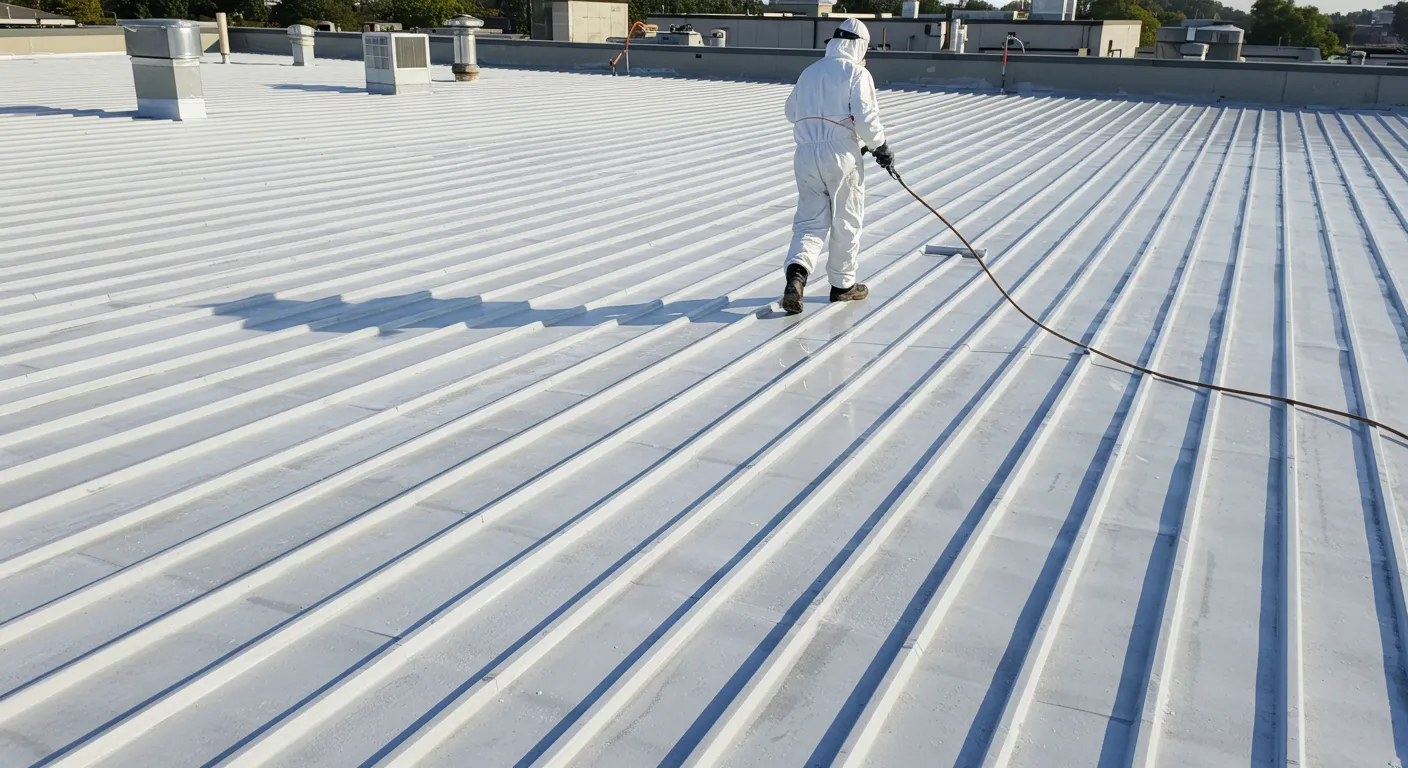
Things to Consider Before Installing Roof Insulation
Evaluate your home’s current insulation condition through a professional assessment. Many Garner homes built before 1980 have inadequate insulation levels that don’t meet current energy codes. Consider the roof’s structural condition, ventilation system, and existing moisture problems before adding insulation.
Budget for comprehensive air sealing along with insulation installation. Air leaks reduce insulation effectiveness significantly, particularly in humid climates where moisture infiltration becomes a concern. Plan for proper ventilation to maintain healthy indoor air quality while maximizing insulation performance.
Check local building codes and permit requirements. Some insulation upgrades may require permits, particularly when modifying roof assemblies or adding significant thickness to existing structures.
Professional Roof Insulation Services in Garner
Raleigh Excel Spray Foam Insulation provides comprehensive roof insulation solutions designed for North Carolina’s climate challenges. The company offers both closed-cell and open-cell spray foam applications that create complete thermal barriers while addressing air sealing requirements.
- Closed-Cell Spray Foam Insulation: Delivers maximum R-value and moisture resistance for cathedral ceilings and exposed roof decks where space is limited.
- Open-Cell Spray Foam Insulation: Provides excellent air sealing and sound dampening for traditional attic applications with adequate thickness available.
- Roof Insulation Services: Complete roof assembly insulation including deck, cavity, and continuous insulation systems.
Key Factors for Long-Term Performance
Understanding maintenance requirements helps preserve insulation effectiveness over time. Inspect roof insulation annually for signs of moisture intrusion, pest damage, or settling that reduces R-value. Address any air leaks promptly, as small gaps can significantly impact overall system performance.
Consider future renovations when selecting insulation types. Spray foam insulation accommodates electrical and plumbing modifications better than rigid materials, providing flexibility for home improvements.
Maximizing Your Home’s Insulation Investment
Proper roof insulation transforms energy efficiency and comfort in homes across Garner. Learn how spray foam insulation in Garner NC can protect your home from moisture damage while maximizing long-term performance.. The combination of energy savings, improved comfort, and enhanced durability makes roof insulation a sound investment for long-term homeownership.
Evaluate your specific situation by considering current energy costs, comfort issues, and long-term plans for your home. Professional assessment provides accurate recommendations tailored to your home’s unique characteristics and your family’s needs.
Bonus Tip: Schedule insulation installation during moderate weather conditions when HVAC systems aren’t working at peak capacity, allowing for better assessment of the completed installation’s effectiveness.
Get Professional Roof Insulation Assessment
Determining the right insulation solution requires understanding your home’s specific requirements and local climate challenges. Professional evaluation identifies the most effective approach for your situation while ensuring proper installation techniques.
Contact Raleigh Excel Spray Foam Insulation at (919) 301-9435 or [email protected] for comprehensive roof insulation assessment and installation services. Expert installation ensures maximum performance and longevity from your insulation investment.
Common Questions About Roof Insulation Installation
Can existing insulation be upgraded without major renovations?
Most homes can receive insulation upgrades through attic access points without disturbing interior finishes. Spray foam can be applied over existing insulation in many cases, though removal may be necessary if moisture damage is present.
How long does roof insulation installation take?
Typical residential roof insulation projects require 1-2 days depending on home size and complexity. Weather conditions may affect scheduling for spray foam applications.
What maintenance does roof insulation require?
Quality insulation requires minimal maintenance but should be inspected annually for pest damage, moisture infiltration, or settling. Spray foam insulation maintains its properties for decades without degradation.




